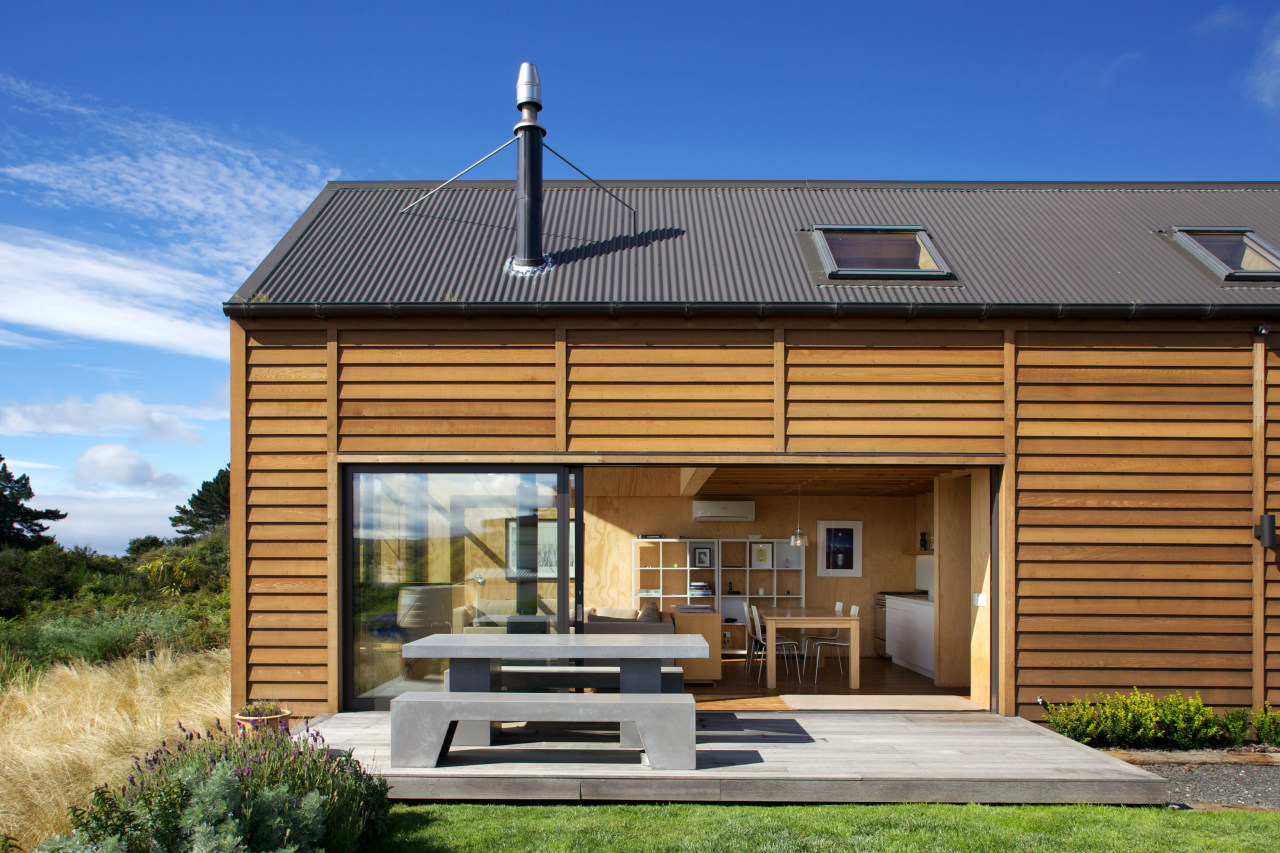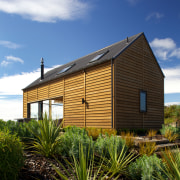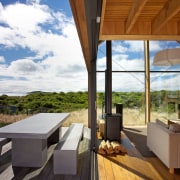Catch the breeze
With its simple, gabled form and natural, raw materials, this weekend retreat provides a modern interpretation of the traditional New Zealand bach

For many New Zealanders growing up, the most memorable summer holidays were those spent lazing away the days in a tiny cottage by the sea, more commonly known as the bach, or if you lived down south, the crib.
These traditional buildings were defined by their DIY construction, their recycled materials and furniture and a lack of amenities, which was all part of the charm.
This back-to-basics architectural heritage has helped influence the design of architect Regan Johnston's own family retreat, which puts a modern spin on the traditional bach.
Johnston says the small fishing community, near the mouth of the Taieri River, was one of the first settlements to be established in Otago Moturata Island opposite was the base for a whaling station in the 1800s.
"The area remains largely unspoiled by development. Many of the original fishing cottages and summer baches are still in use, and they are clearly a product of their environment. Their form and scale has been influenced by function and affordability many reflect a DIY approach. They have been added onto over the years, with many recycled materials in use."

Johnston says his own family bach is a response to these influences. Like those original cottages it is also an exercise in affordability, and it has been designed so the structure can adapt and grow over time according to the needs of the family and future generations.
The house has a simple gable form with a fully glazed end that soars to create a double height volume. The ground floor is comprised of an open-plan living area, which opens out to a timber deck on the north side, and a bathroom. A mezzanine level with large skylights accommodates two bedrooms.
"The gable form creates a very economical building envelope, with a footprint of just 55m²," says the architect. "It meant the house could be built in eight weeks. It also created a spacious living area the double-height volume dramatically increases the apparent size and quality of the space. It also provides views over Moturata Island and across the coast to the lights of Dunedin, from both levels."
Natural materials feature throughout the house, including cedar wood cladding, pine plywood interior walls and recycled heart rimu wood flooring.
"These materials have been left to develop a weathered patina over time," says Johnston. "The rimu floor was simply oiled, and the plywood sealed only in moisture sensitive areas."

The architect says the plywood provides structural support and bracing, with plywood box beams avoiding the need for any steel work, except for the gable end cross braces.
Because the bach is used intermittently, energy requirements have been considered accordingly. The ceilings and walls are heavily insulated, and heating is provided by a wood stove, supplemented by a heat pump.
"With its internal flue, the stove creates so much heat it can be like a sauna inside the house, even on the coldest days," Johnston says. "The house also benefits from solar gain in winter."
Gas is used to heat hot water on demand, and also for cooking. And like the traditional baches in the area, rainwater is captured from the roof and stored for use inside.
Johnston says provision has been made for a second wing to be added to the house in the future. This could be positioned at right angles to the existing structure, or placed parallel, with a separate linking volume.
Story by: Trendsideas
Home kitchen bathroom commercial design
Home Trends Vol. 30/4
New Home Trends features top locations from New Zealand and the rest of the world. New Home Trends is dedicated to provi...
Read More








